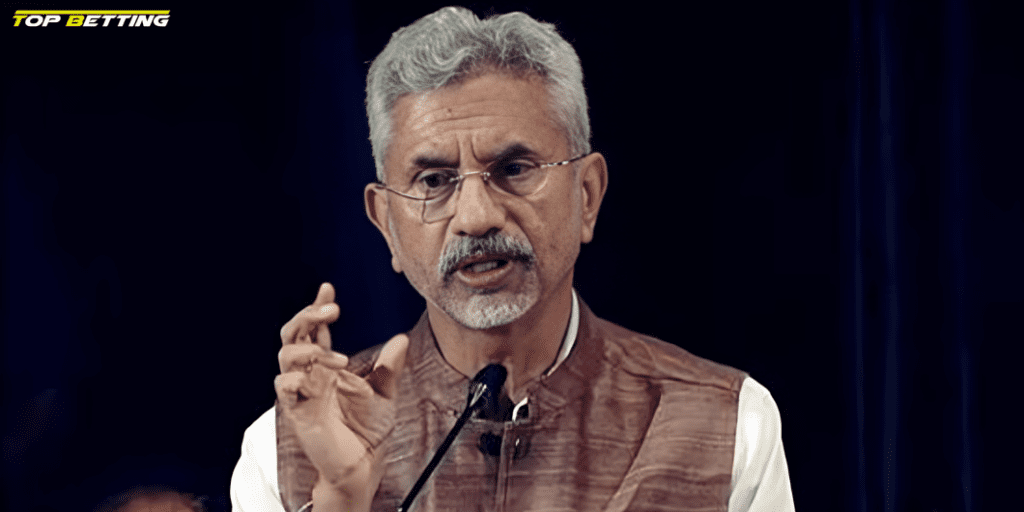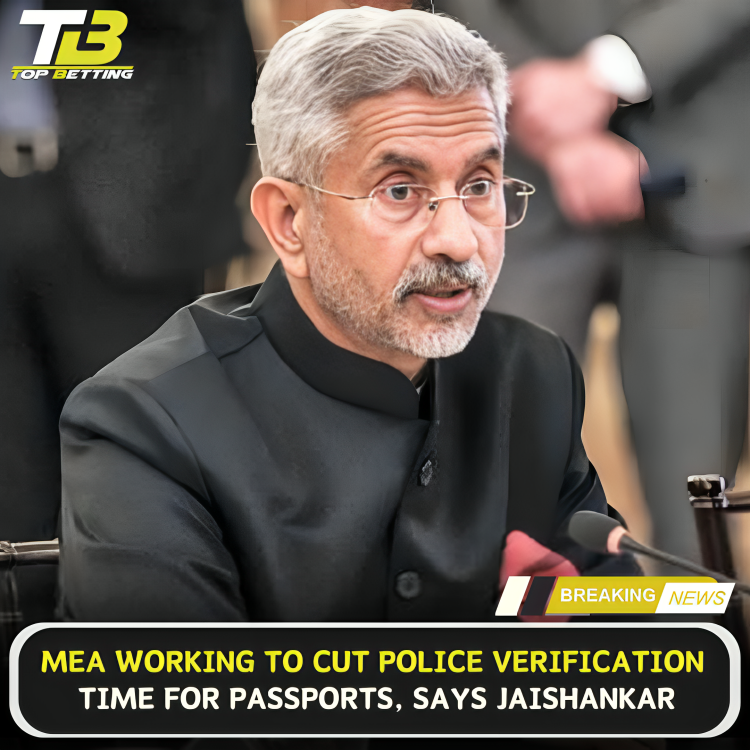
MEA to cut passport police verification time
Police verification has been a crucial step in the passport application process says Jaishankar, serving as a means to verify the identity and criminal record of applicants. However, this process has often been plagued by delays, leading to frustration among applicants. One of the primary challenges faced in passport police verification is the time-consuming nature of the process. With manual verification methods and bureaucratic hurdles, the entire process tends to be slow and cumbersome.
Moreover, the coordination between the police departments and passport authorities can sometimes be lacking, resulting in further delays. This lack of synchronization can lead to discrepancies in the information provided by the applicant and the verification conducted by the police. Such discrepancies often necessitate re-verification, adding to the overall processing time.
Another challenge is the inconsistency in the verification process across different regions. The efficiency of police verification can vary significantly depending on the location, leading to disparities in processing times for applicants. This lack of uniformity further complicates the already intricate process of obtaining a passport.
Importance of Reducing Police Verification Time
Reducing the time taken for police verification is paramount in enhancing the efficiency of the passport issuance process. A prolonged verification process not only inconveniences applicants but also hampers the overall functioning of the passport authorities. By expediting police verification, the entire application process can be streamlined, leading to quicker issuance of passports.
In today’s fast-paced world, where individuals often require passports for various purposes on short notice, reducing the verification time can make a significant difference. It can enable applicants to obtain their passports promptly, allowing them to travel for work, education, or leisure without unnecessary delays. Additionally, a swift verification process can help in tackling issues such as expired passports or lost documents that require urgent replacement.
Furthermore, quicker police verification can contribute to enhancing national security measures. By promptly verifying the credentials of passport applicants, authorities can ensure that only eligible and legitimate individuals receive passports. This, in turn, helps in preventing misuse of passports for unlawful activities, thereby strengthening the security framework.
Measures Taken by MEA to Cut Police Verification Time
Recognizing the need to address the challenges posed by lengthy police verification processes, the Ministry of External Affairs (MEA) has initiated several measures to expedite the verification process. One of the key strategies employed by the MEA is the integration of technology in the verification process.
By leveraging digital platforms and online databases, the MEA aims to streamline the verification process and reduce manual intervention. This digitization not only speeds up the verification process but also minimizes errors and discrepancies that may arise during manual verification. Additionally, the use of technology enables real-time tracking of verification status, keeping applicants informed about the progress of their applications.
Moreover, the MEA has emphasized the need for better coordination between passport authorities and local police departments. By establishing clear communication channels and protocols, the MEA aims to ensure seamless verification processes across different regions. This improved coordination can help in standardizing verification procedures and reducing processing times.
Benefits of Reducing Police Verification Time
The efforts to reduce police verification time come with a myriad of benefits for both applicants and authorities involved in the passport issuance process. One of the primary benefits is the significant reduction in processing time for passport applications. Quicker verification translates to faster issuance of passports, enabling applicants to receive their travel documents in a timely manner.
Additionally, expedited police verification can lead to enhanced applicant satisfaction. By minimizing delays and streamlining the verification process, applicants experience a smoother and more efficient application journey. This, in turn, boosts confidence in the passport issuance system and encourages more individuals to apply for passports.
From a logistical standpoint, reducing police verification time can result in cost savings for both applicants and the government. Shorter processing times mean reduced administrative overheads and operational expenses, making the overall process more cost-effective. Moreover, the enhanced efficiency can lead to a higher throughput of passport applications, further optimizing resource utilization.
Role of Technology in Expediting Police Verification Process
Technology plays a pivotal role in expediting the police verification process and revolutionizing the way passport applications are processed. The integration of digital platforms, biometric authentication, and online verification tools has streamlined the verification process, making it more efficient and reliable.
Biometric verification, such as fingerprint scanning and facial recognition, has significantly enhanced the accuracy of identity verification, reducing the chances of fraudulent activities. These advanced technologies not only expedite the verification process but also strengthen the security measures in place, safeguarding against identity theft and forgery.
Moreover, online verification tools enable real-time verification of applicant data against various databases, ensuring quick and accurate results. By automating the verification process, technology minimizes human errors and accelerates the overall processing time. Applicants can conveniently submit their documents online, eliminating the need for physical visits to verification centers.
Conclusion and Final Thoughts

In conclusion, the efforts undertaken by the Ministry of External Affairs to reduce police verification time for passports mark a significant step towards enhancing the efficiency of the passport issuance process. By addressing the challenges faced in verification processes, implementing technological solutions, and fostering better coordination, the MEA is paving the way for a more streamlined and expedited application experience.











